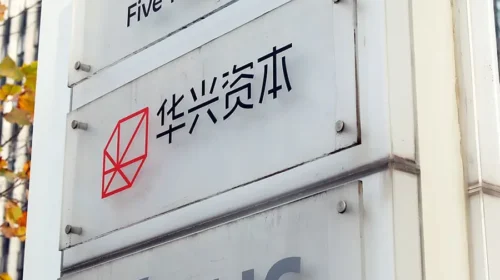WeRide tries buyback maneuver in tight robotaxi race

The developer of driverless technology has unveiled a $100 million share buyback program in a bid to reassure investors after a stock price slide
Key Takeaways:
- Shares in the robotaxi operator have fallen nearly 40% since its U.S. IPO last year
- WeRide is in a fierce contest with Pony AI for investor confidence and market expansion opportunities
By Lee Shih Ta
A share buyback is often a move to boost investor confidence or drive up a company’s stock price. In the case of Chinese robotaxi operator WeRide Inc. (WRD.US) the motives deserve closer attention.
Why would a loss-making company battling for pole position in the autonomous driving sector buy up a block of its own shares instead of ploughing the money into research or the rollout of its diverless vehicles?
The U.S.-listed developer of automotive technology recently made three significant announcements. It released first-quarter earnings, unveiled a $100 million program to buy back its shares, and outlined plans to deepen a partnership with Uber and Tencent to expand its international robotaxi fleet.
WeRide’s quarterly revenues rose a modest 1.8% to 72.40 million yuan ($10 million) from the same period a year earlier, despite growing competition in the self-driving sector and the constraints of a weak economy. Robotaxi takings increased to 16.10 million yuan, representing 22.3% of total revenue compared with 11.9% in the year-earlier period. Robotaxis are rapidly becoming WeRide’s mainstay business, with the fleet size exceeding 1,200 vehicles in operation for more than a combined 2,000 days in the quarter.
Nonetheless, high R&D costs and rapid expansion left the company spinning its wheels in the red. WeRide narrowed its net loss to 385 million yuan from 468 million yuan in the same quarter of last year. However, the non-IFRS adjusted loss grew from 142 million yuan to 295 million yuan. Notably, R&D spending excluding stock-related expenses jumped 54% to 278 million yuan, one of the biggest drags on profit.
The company was sitting on 4.43 billion yuan in cash and cash equivalents by the end of March, which together with 1.75 billion yuan in financial assets brought total reserves to more than 6 billion yuan. Its finances are robust enough to cover short-term outgoings and strategic spending.
In spite of the losses and heavy expansion costs, the management team still approved a one-year share repurchase program worth $100 million – an unusual move for a firm that is still getting global market traction.
Tech companies tend to invest their cash in product development, marketing and R&D during their growth stage, rarely returning funds to shareholders via buybacks. Going against that trend, WeRide’s decision looks to be a response to a slumping stock price. Since listing in the United States last October, WeRide has seen its share price fall 39% below the IPO level, battered by intensifying competition in the robotaxi industry.
Jostling for position
With dominance still up for grabs in this emerging sector, companies that can command market confidence stand a better chance of clinching collaboration deals that will add fuel to their expansion plans.
WeRide’s arch rival Pony AI (PONY.US), not to be outdone, also motored to U.S. IPO late last year, and showcased its state-of-the-art robotaxi fleet on April 23, a day after the end of the lockup for WeRide shares issued to original shareholders. WeRide shares plunged 17% that day, the biggest single-session decline in months.
As WeRide shares ran out of gas, Pony AI’s stock has surged 71.58% since the firm’s IPO, generating a market cap of $7.32 billion, more than double WeRide’s valuation of $2.87 billion. Pony AI is now trading at a price-to-sales (P/S) ratio of around 62 times, clearly taking the lead with investors as WeRide trails behind with a multiple of nearly 47 times.
The two brands are battling it out head to head to dominate China’s market for robotaxis equipped with level 4 technology that can carry out most driving tasks without human intervention.
They run overlapping businesses and are competing for capital, collaboration deals and overseas rollout. Both have struck up partnerships with Uber, launched robotaxi businesses in Europe and the Middle East and recently linked up with Tencent Cloud for tech services.
In light of the strategic partnerships with Uber and Tencent, WeRide’s share buyback looks more like a bid to grab the spotlight and bolster market sentiment, with tech stocks generally under pressure.
Buying up shares will reduce supply and support stock prices in the short term. A more stable market cap could improve the company’s standing with potential strategic investors, improving refinancing prospects. In a sense, WeRide is bidding to regain control of the narrative by sending out positive signals to investors.
However, market reaction was mixed. WeRide’s shares soared more than 20% on the day of the announcement but fell back over 10% in the next two sessions. The move delivered a short-term boost but left investors unconvinced about the long-term outlook. Morgan Stanley maintained an “outperform” rating but cut its target price for the stock from $23 to $13 per share, dampening the market mood.
WeRide has not achieved a course correction with its share buyback plan. But the robotaxi race could have many twists and turns. The outcome will ultimately depend on whether WeRide can power ahead with mass rollout and improve its cash flow.
To subscribe to Bamboo Works free weekly newsletter, click here




